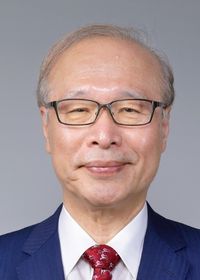

EDUCATION
1978-1985 The University of Tokyo, Ph.D. in Nutrition, Dissertation Topic: “Characteristic of eating behavior in obesity people and effectiveness of behavior modification therapy”
1968-1972 The University of Tokushima School of Nutrition, B.S. Dietetics
EXPERIENCE
2011-Present Kanagawa University of Human Services, President, 2011-Present, 2003-2011 Dean, Professor, School of Nutrition & Dietetics, 2003-2011
1987- Present St. Marianna University School of Medicine Hospital Visiting Professor
Director, Food & Nutrition department 1999-2003, Director, Food & Nutrition department, Yokohama, 1994-1999
Clinical Dietitian, Food & Nutrition department, Yokohama, 1987-1994
1972-1975 Shinjuku Hospital, Clinical Dietitian
OTHER APPOINTMENTS
2004-Present President of The Japan Dietetic Association
2013-Present President of Japanese Association of Nutritional Science Education
2019-Present Honorary member The Japanese Society of Nutrition and Dietetics
Remote speaker / Presenting virtually
Since the SDGs, people around the world have begun to recognize that the eradication of malnutrition is an important issue for the survival and development of humankind. However, the results have not been as good as we have expected. 150 years ago, Japan modernized its nation and introduced nutrition science to improve its undernutrition diet due to its traditional staple food bias. It also controls obesity and non-communicable diseases caused by westernization of the diet after high economic development, and maintains a healthy and long-lived country. The reason is that the government, universities, industry, and professional associations have collaborated to improve nutrition as a national policy. We trained many dietitians who are nutritional professionals, and placed them in every place of society according to the "Nutrition Improvement Law." Dietitians provided healthy diets and provided thorough nutrition education centered on group lunch facilities. So to speak, a project by "industry-government-academia collaboration" carried out a comprehensive eradication campaign for malnutrition.
We created a healthy Japanese-style diet by appropriately mixing a traditional low-nutrition diet with a high-nutrition Western diet. “Green recovery" has been called out as a post-corona reconstruction plan, and diets with low greenhouse gas emissions are being considered.The amount of greenhouse gases emitted by the Japanese from livestock is less than half of the global average by FAO.The reason why we were able to create a healthy diet with less environmental impact is that Japan has introduced and practiced nutrition while inheriting the traditional food culture that respects nature.This is collectively called "Japan Nutrition".